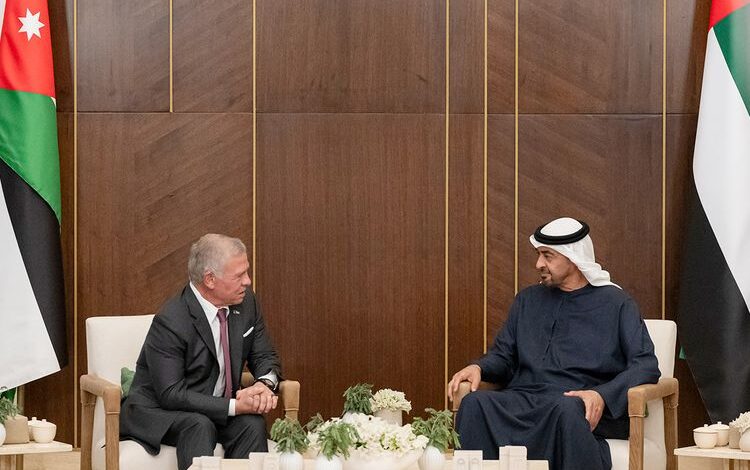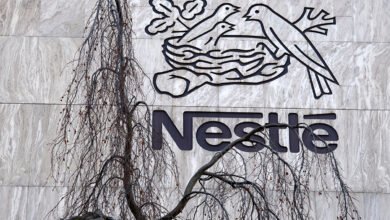
Regional Developments Discussed by UAE President and Jordanian King
UAE President’s latest diplomatic participation marks a significant moment in Middle Eastern relations. His Highness Sheikh Mohamed bin Zayed Al Nahyan met with King Abdullah II ibn Al Hussein of Jordan. This meeting shows UAE’s steadfast dedication to deepening regional alliances.
Both leaders discussed bilateral relations and regional developments that reflect their shared vision for stability and prosperity in the region. They focused on current challenges and ways to build upon their existing mutually beneficial alliance. Their shared approach represents a vital step toward improved cooperation across economic development and security coordination sectors.
Historic UAE-Jordan Partnership
UAE and Jordan share one of the region’s longest-standing diplomatic bonds since UAE’s formation. Jordan recognized UAE’s establishment on December 3, 1971. This laid the foundations of their strong bilateral ties. UAE opened its embassy in Amman in July 1973, and Dr. Sheikh Faisal bin Khalid Al Qasimi became UAE’s first ambassador.
Their partnership has grown substantially over decades, especially in economic cooperation. Current developments showcase the strength of their relationship:
- Jordan stands as UAE’s third-largest Arab trade partner outside the GCC
- Non-oil bilateral trade reached AED 15.42bn in 2023
- Both countries’ mutual investments total approximately AED 82.62bn
The relationship reached a milestone with the Comprehensive Economic Partnership Agreement (CEPA), UAE’s first such agreement with an Arab nation. This mutually beneficial alliance covers sectors of all types including renewable energy, manufacturing, transport, and pharmaceuticals. UAE’s Ministry of Investment has identified opportunities worth over AED 7.34 billion in Jordan. This shows the continued growth potential of their historic partnership.
Both nations work together to upgrade institutional systems and improve public sector performance through governmental modernization initiatives. Their integrated approach to bilateral cooperation reflects the deep-rooted ties that have defined UAE-Jordan relations for more than 50 years.
Key Discussion Points
The UAE President and King Abdullah II of Jordan met to discuss key regional developments and Syria’s future. Both leaders showed their steadfast dedication to Syria’s unity, stability, sovereignty, and territorial integrity. They stressed how crucial it was to protect national institutions.
Their talks led to several key outcomes:
- Support for initiatives that line up with Syrian people’s hopes
- Focus on stopping regional conflicts from spreading
- Steps to boost regional stability
- Backing for complete peace initiatives
Both leaders agreed they needed to step up efforts to boost regional stability and prevent conflicts from spreading. King Abdullah praised UAE’s positive role in supporting regional stability. They also talked about Gaza and stressed the need for a clear roadmap to complete peace based on the two-state solution.
Strategic Regional Focus The meeting showed both countries’ shared dedication to keeping brotherly talks going on matters that affect them both, especially given today’s regional challenges. Dr. Anwar Gargash, diplomatic adviser to the President, said the UAE “presents a successful regional model to be copied” when dealing with complex regional dynamics.
They also discussed Lebanon’s situation and restated their support for its unity, sovereignty, and territorial integrity while standing with the Lebanese people. This thorough dialogue shows both nations’ commitment to encouraging stability and peace in Middle Eastern countries.
Strategic Regional Impact
The UAE and Jordan’s strategic collaboration continues to bring major economic and security advantages to the region. Their relationship shows remarkable progress. Non-oil trade reached AED 15.42 billion in 2023, which proves how strong their economic partnership has become.
Their teamwork has created several positive changes in the region:
- Non-oil bilateral trade grew by 36.8% in the first half of 2024
- Mutual investments between both nations reached approximately AED 82.62 billion
- The UAE maintains its position as Jordan’s top foreign investor
Both countries have strengthened their security ties by working together to curb drug trafficking and crime. Their interior ministers have created new ways to share expertise and coordinate efforts that help maintain regional stability.
This partnership goes beyond just two countries working together. Both nations showed their support for Syria’s stability. They stress the need to protect Syria’s national institutions and back initiatives that match Syrian people’s hopes. Their coordinated strategy shows their shared vision for regional security and growth.
The economic partnership will likely create new opportunities in renewable energy, industrial projects, manufacturing, and pharmaceuticals. This wide-ranging cooperation makes the region’s economy stronger and encourages green development throughout the Middle East.
The diplomatic ties between UAE and Jordan are evidence of their enduring partnership that has flourished for over five decades. Both nations have deepened their commitment to regional stability and growth through enhanced cooperation in economic, security, and diplomatic areas. Their alliance rests on a reliable economic foundation, with trade reaching AED 15.42 billion and mutual investments totaling AED 82.62 billion.
UAE and Jordan share a vision that goes beyond their bilateral relations. They work together to address significant regional challenges through coordinated diplomatic initiatives. Both countries have emerged as leading architects of Middle Eastern prosperity through their unified approach toward Syrian stability and strategic collaborations in security and economic development. This partnership shapes regional dynamics and promotes peace, economic growth, and stability throughout the Middle East while setting new standards for international cooperation.






